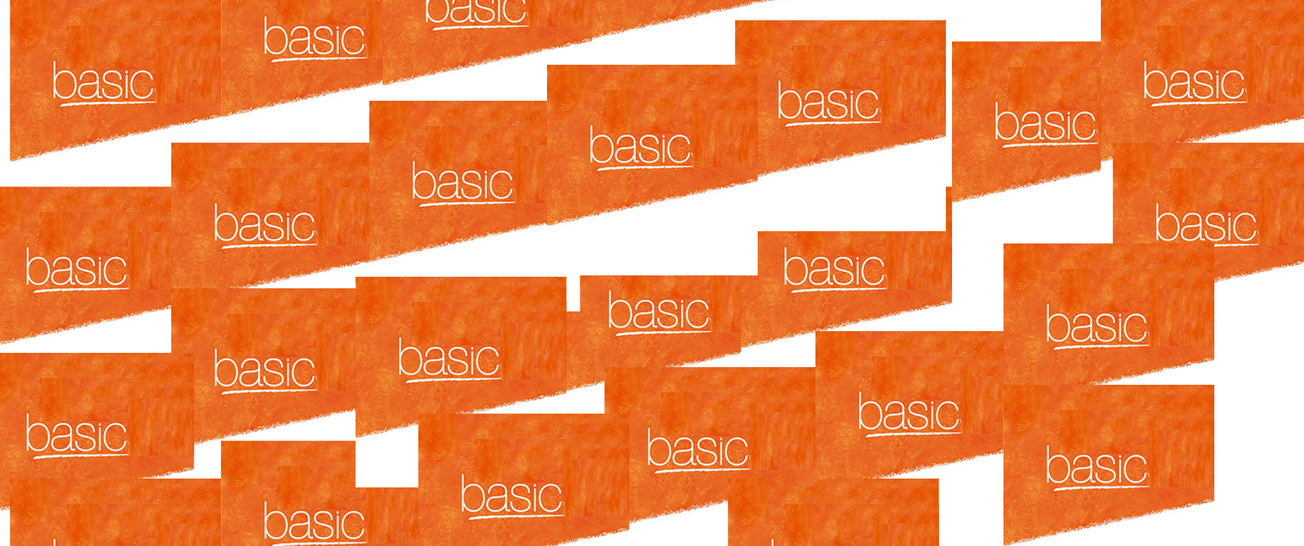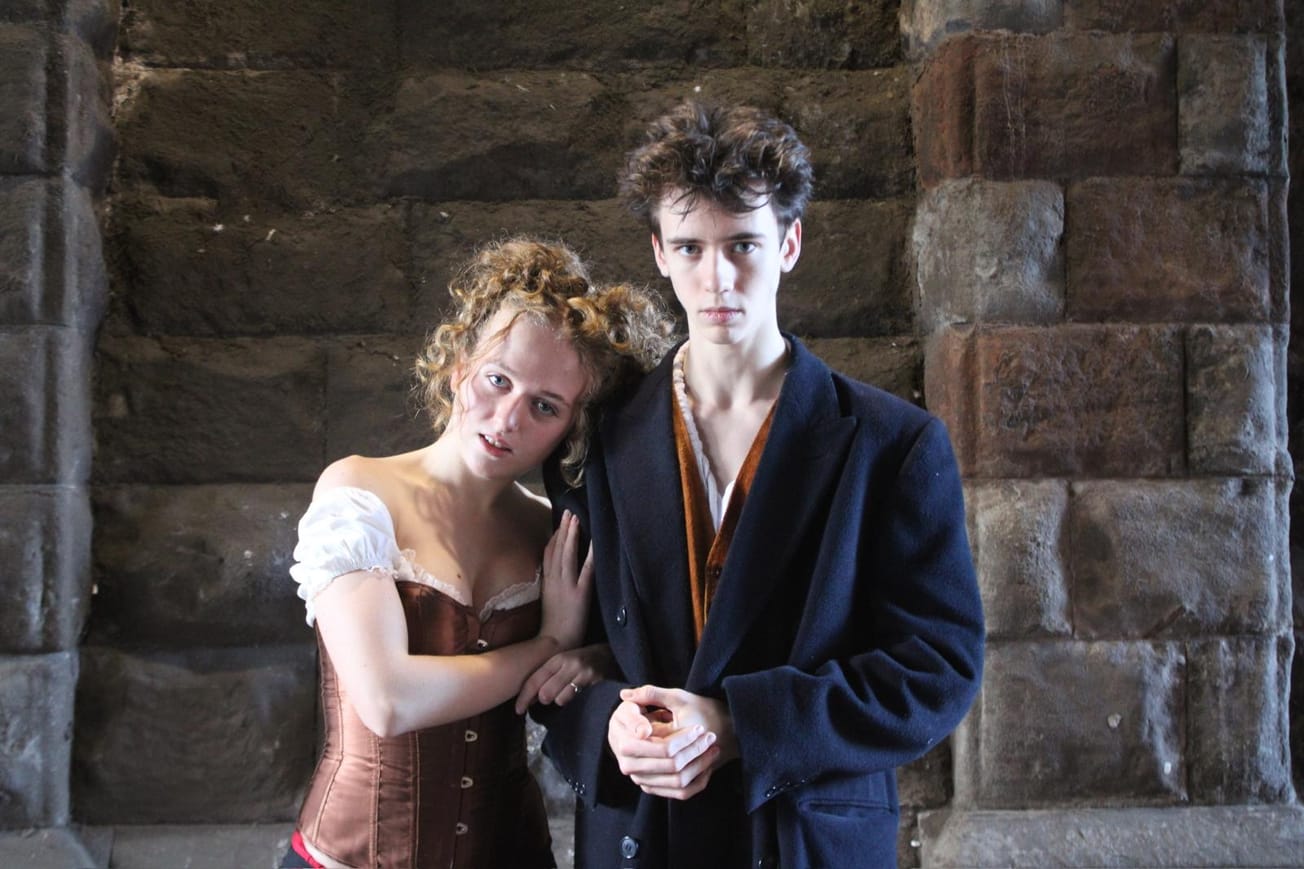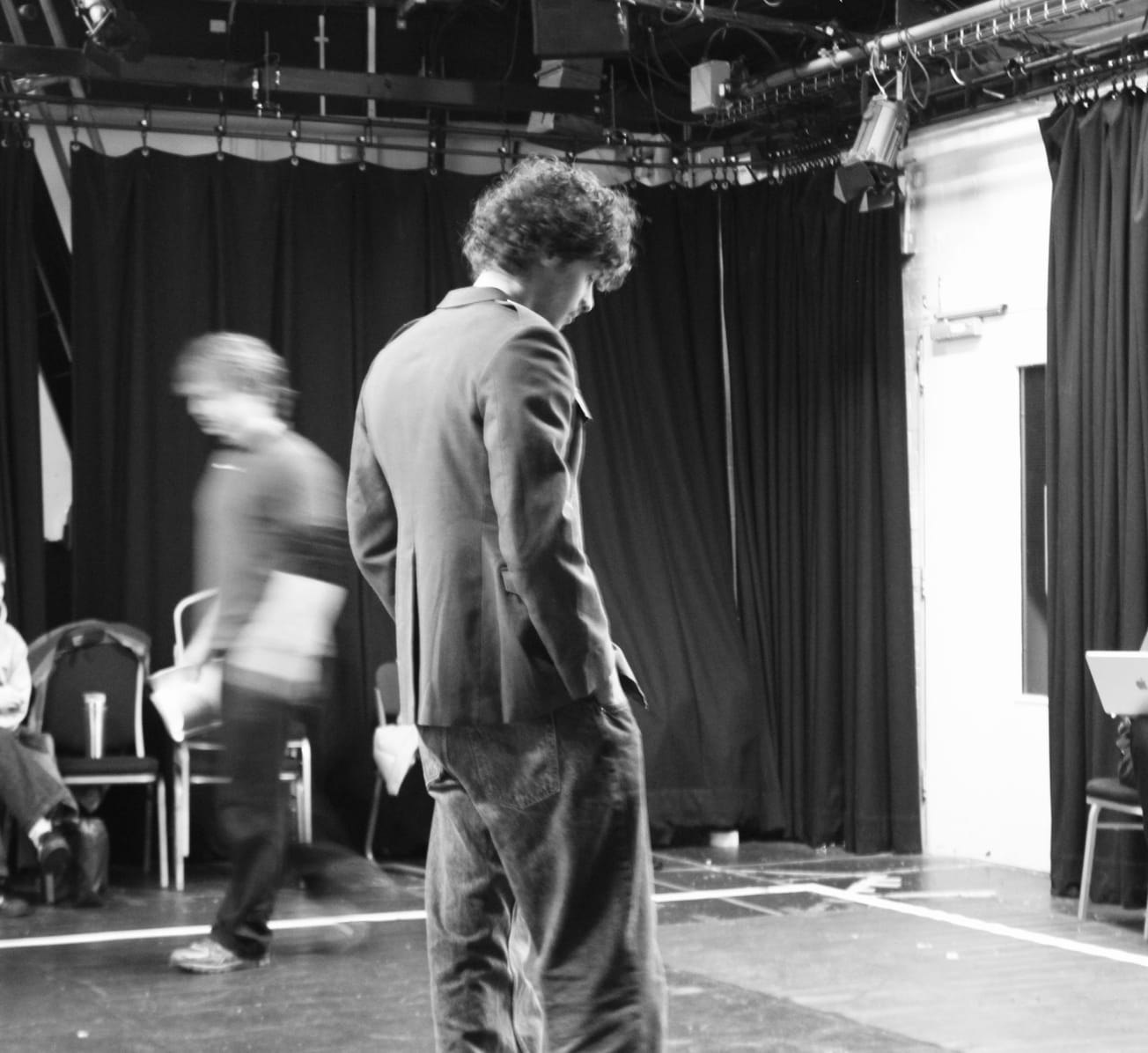Online Editor Helena Raymond-Hayling attempts to school Sam Gooch, a certified basic science boy, as to the joys and merits of art on a field trip to the RWA.
One afternoon at Epigram Arts HQ, the editorial team decided it was time to give something back to the community. Our mission became to share our artsy knowledge with others less fortunate, less cultured, less deep and less edgy. We aimed to cultivate creativity, character and the essence of what art even means into those who need it the most, basic bitches. I looked no further than my dear friend, Sam Gooch.
Sam is a final year Physicist who believes baked beans are an acceptable accompaniment to pasta and that Macklemore is an authentic rap artist. Frequently found getting down in Lizard Lounge wearing grey clothing purchased by his mum, I knew he would be a perfect guinea pig for a bit of Arts therapy. It took little more than the promise of a coffee on me (in truth a hot chocolate - owing to Sam's basic palate) to rope him in for a bonding afternoon and some creative enlightenment in exchange for his thoughts on Women with Vision at the RWA.
'A bit of creativity makes everything more interesting. Take sex - no one would enjoy purely 'functional' sex.'
I get the chance to ask Sam a couple of questions before entering the gallery space, as we take some time to sit on the stairs and gauge what kind of schooling was necessary for an upgrade from BasicsBoy© to a FinestFella™. Women with Vision is an exhibition marketed as 'a celebration of women in British art - past, present and future, [marking] the impact of female artists on our country's artistic landscape'. I begin by asking Sam what it is he expects of this exhibition.
'Based on the title, I'd say some paintings and some low-key feminism. Nothing too out there, not like that woman who painted with a brush in her vagina -- I didn't really get that. Tell me again, is it paintings of women or paintings by women?'
I realise that I have my work cut out.
[We] express ... distaste in meaningless linguistic clichés frequently seen in exhibition texts serving no purpose but to add grandeur.
'How do you feel about art Sam? Are there any artists you like, and did you enjoy learning about it at school?', I pose.
'It's alright, yeah. Van Gogh is good, complete nutjob, gotta respect that. I was never any good at art at school, just an hour of messing around really. I enjoyed the doss.'
What makes a good piece of art?
'Something that's pretty to look at - the Sistine Chapel ceiling, that's pretty nice. If I believe a piece of art is pretentious I'll automatically dislike it, art for art's sake is a bit pointless.'
What is the point then? Do works of art need to be functional, or is it enough to be interesting?
'Well, no. If everything were just simply functional that would be boring. A bit of creativity makes everything more interesting. Take sex - no one would enjoy purely 'functional' sex.'
As Sam says this in hushed tones in the very prim and proper atmosphere of the RWA, I find myself snorting coffee through my nose in laughter. With this, I suddenly get the feeling Sam has the makings of a brilliant critic.
Do you think this exhibition will change your mind? Or that art can help you grow as a person?
For a second, Sam pauses thoughtfully to ponder my question.
'Not really, no.'
And with that, we enter the space.
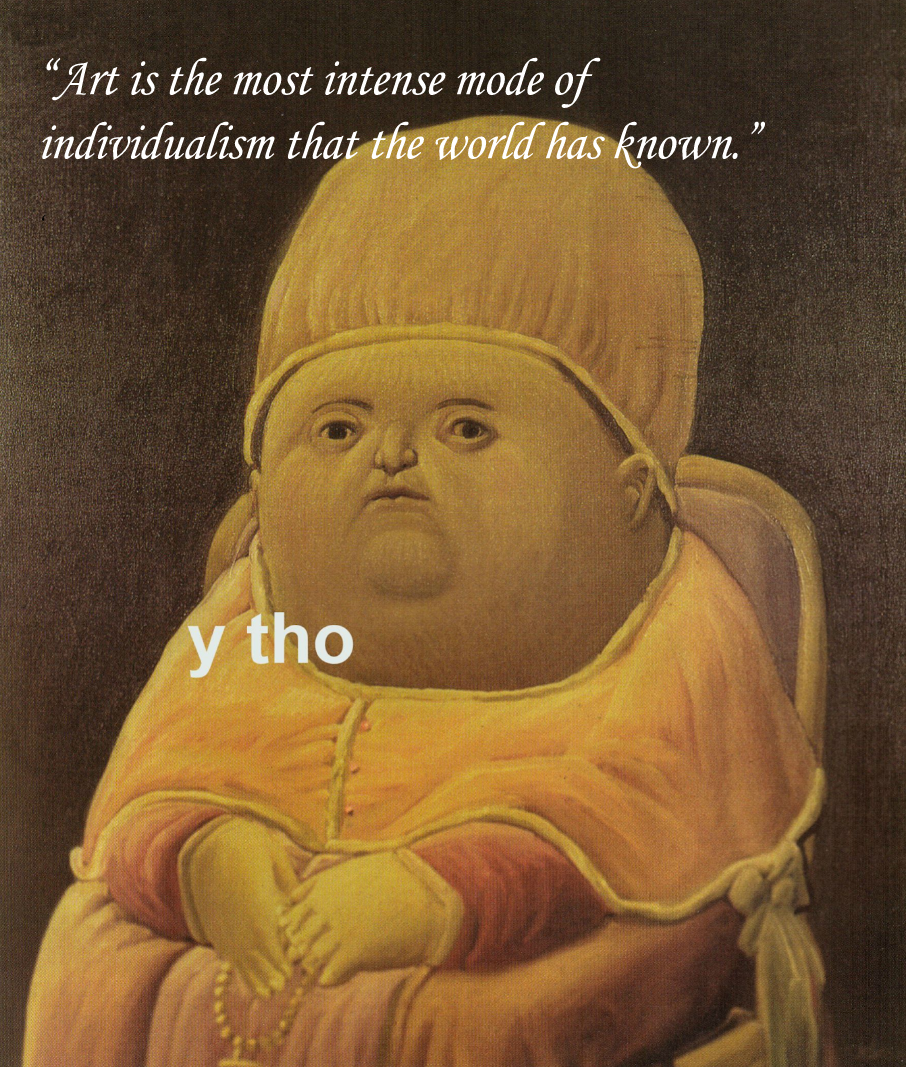
We peruse the works available in a clockwise and systematic manner, undoubtedly giving us up as the left-brain scientists we undeniably are. Sam reads one of the plates accompanying a painting, and tuts, rolling his eyes.
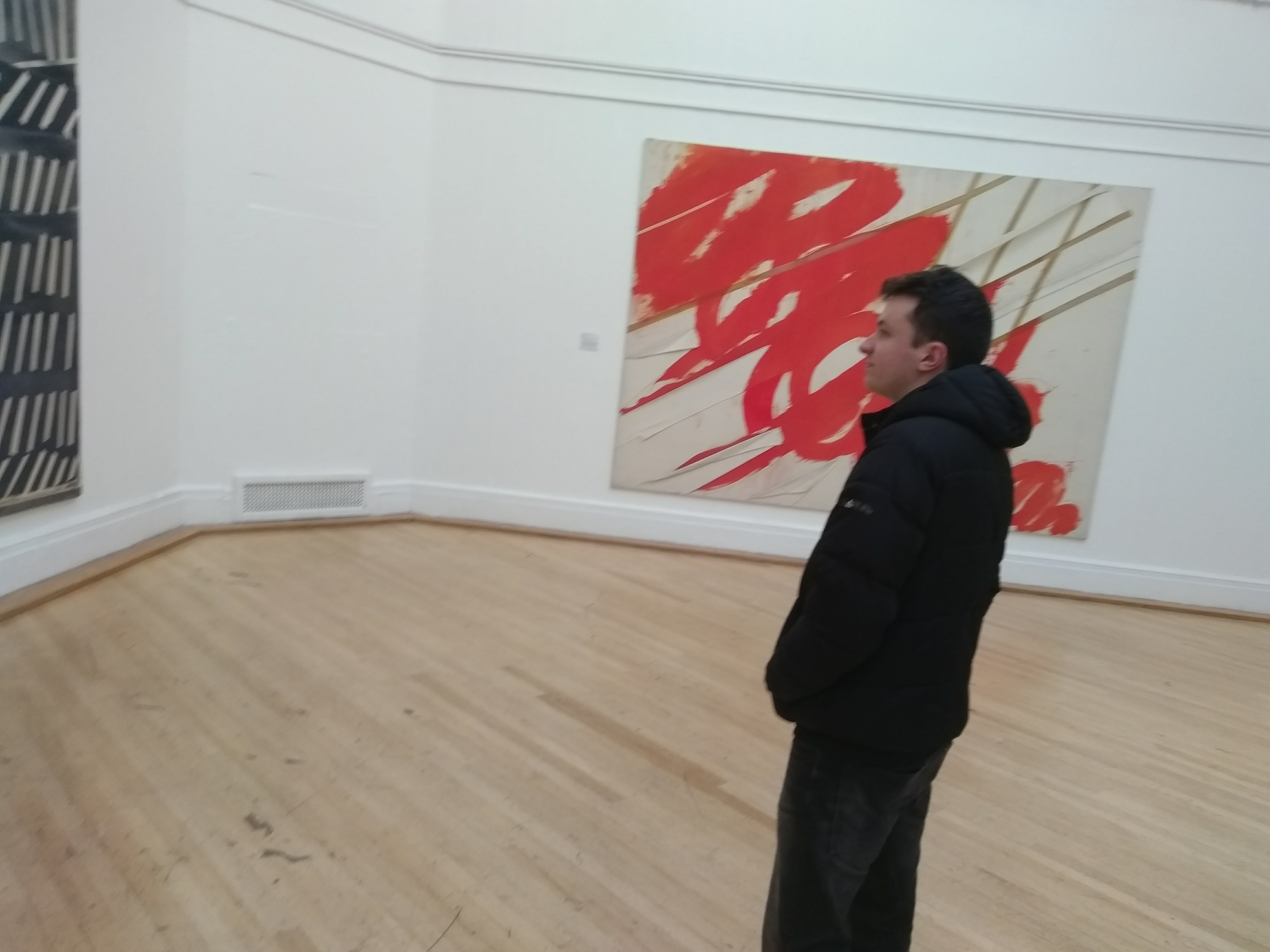 Epigram / Helena Raymond-Hayling
Epigram / Helena Raymond-Hayling
'Juxtaposition. Arty folks love to use that word. Anything is a juxtaposition if you try hard enough. Does it even mean anything? Or is it just a bollocks filler word?'
I cannot help but agree with Sam, and too express my distaste in meaningless linguistic clichés frequently seen in exhibition texts serving no purpose but to add grandeur. The painful misappropriation of words of scientific meaning is a peeve that we evidently both share — it would seem our views are not so diametrically opposed after all, and I wonder why should it take a quantum leap to make art accessible to all, even the most basic of bitches?
Sam spies an etching mounted on the wall, and screws up his face quizzically and leans in close to it. I follow him eagerly and await his opinion, hoping for more words of untapped artistic wisdom.
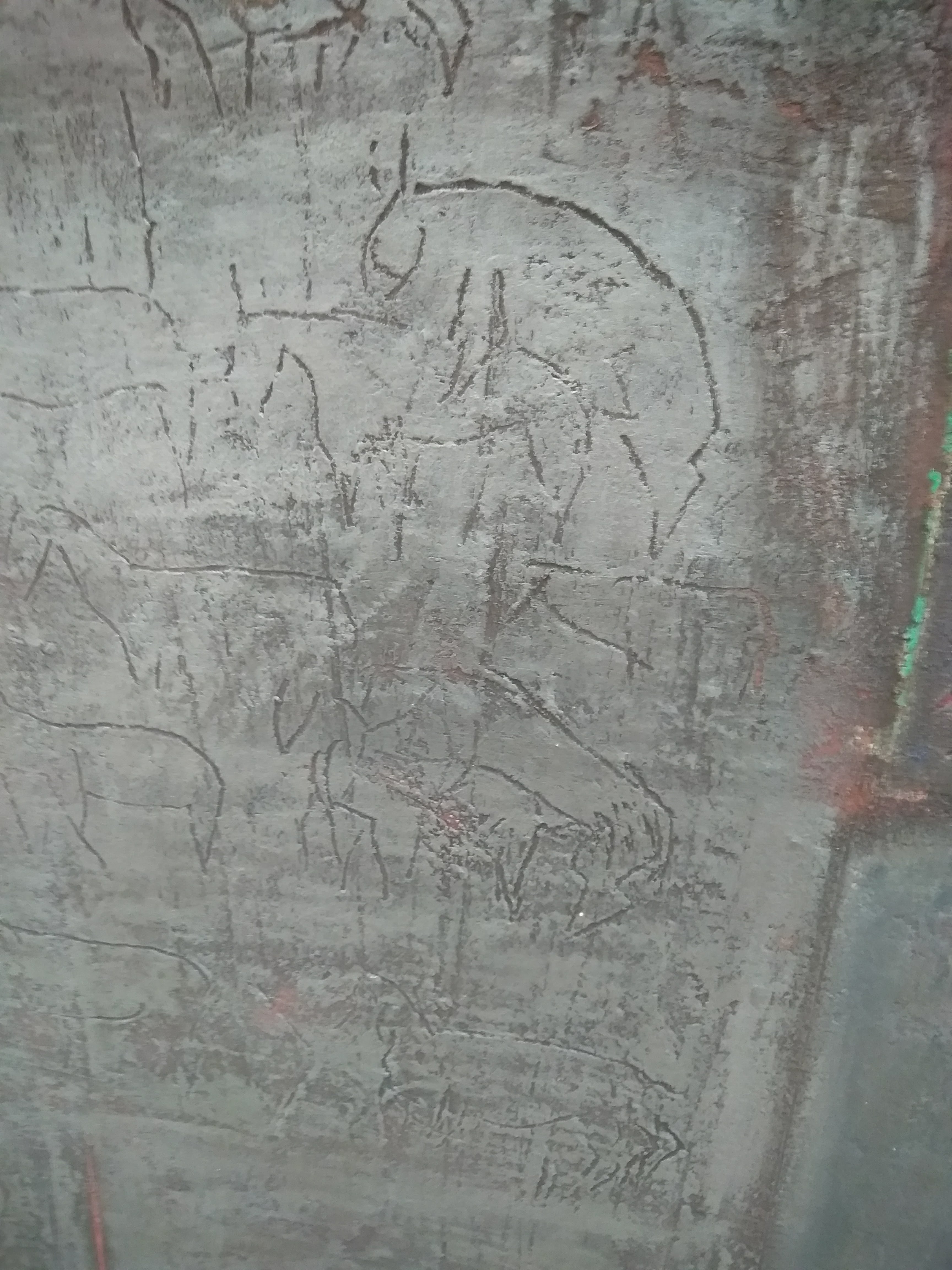
Epigram / Helena Raymond-Hayling
'Are those horses fucking?'
I regard the piece, and find that they are indeed horses, that are indeed fucking.
'That doesn't look very functional'.
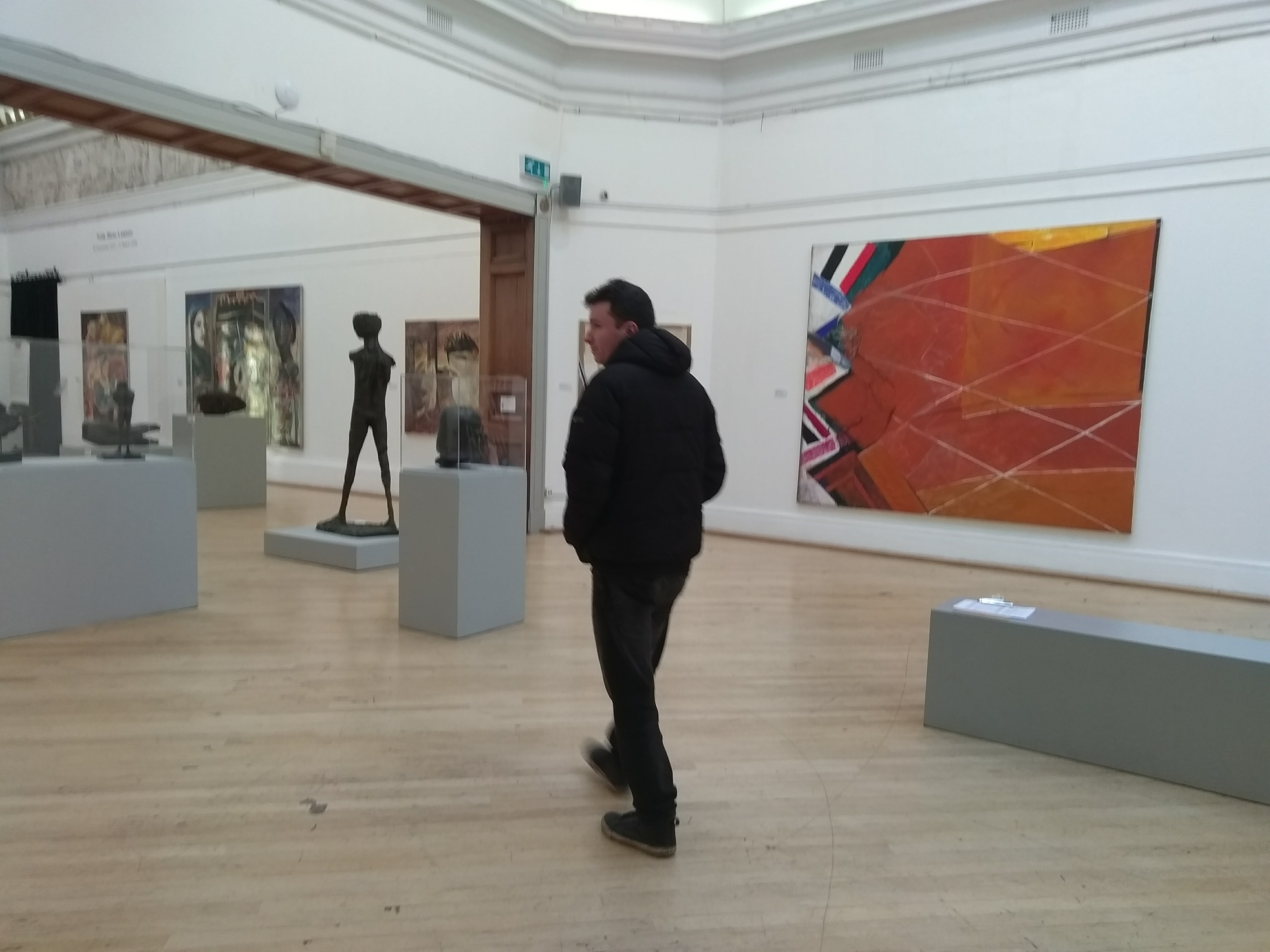
Epigram / Helena Raymond-Hayling
We continue our journey through the exhibition, pausing to examine the works around us, both agreeing and disagreeing on their various merits and successes.
Sam makes some interesting connections and cultural references, dubbing one of the historical works as 'Woman in Black meets Phantom of the Opera'. What significance this analysis has if any, is unclear.
 Epigram / Helena Raymond-Hayling
Epigram / Helena Raymond-Hayling
‘Touchstone’ (2003) by Sandra Blow catches my attention, its magnificent size and bright blocks of colour are truly impressive, and I bring Sam over to draw his attention to it.
'You only like that because it's big — if it were small it could be a child's painting.'
I explain to Sam that he's not wrong, but just because something looks less skillful does not necessarily mean it is so. We agree to disagree, and finish our visit by examining the sculptural work dotted around the room.
'This guy looks like he's seen better days', Sam says, gesticulating towards a bust in the Frink-Blow-Lawson section of the exhibition.
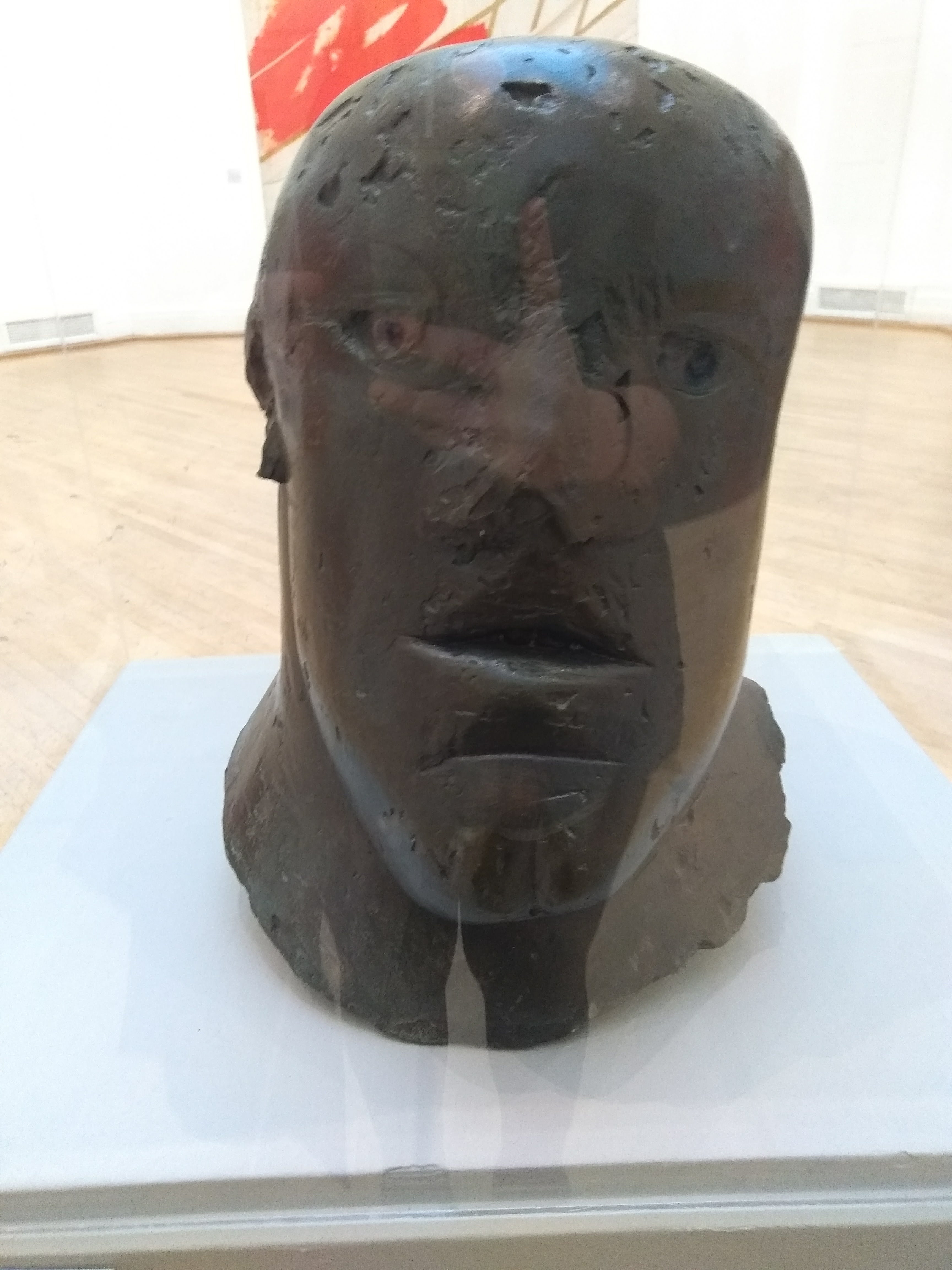
'I wouldn't have them in my house, put it that way'.
He is equally unimpressed by the other sculptures in this collection, frowning quizzically at the mangled figures on the floor.
'Are these the guys from Pompeii?'
I tell him that they are not, alas 'the guys from Pompeii'.
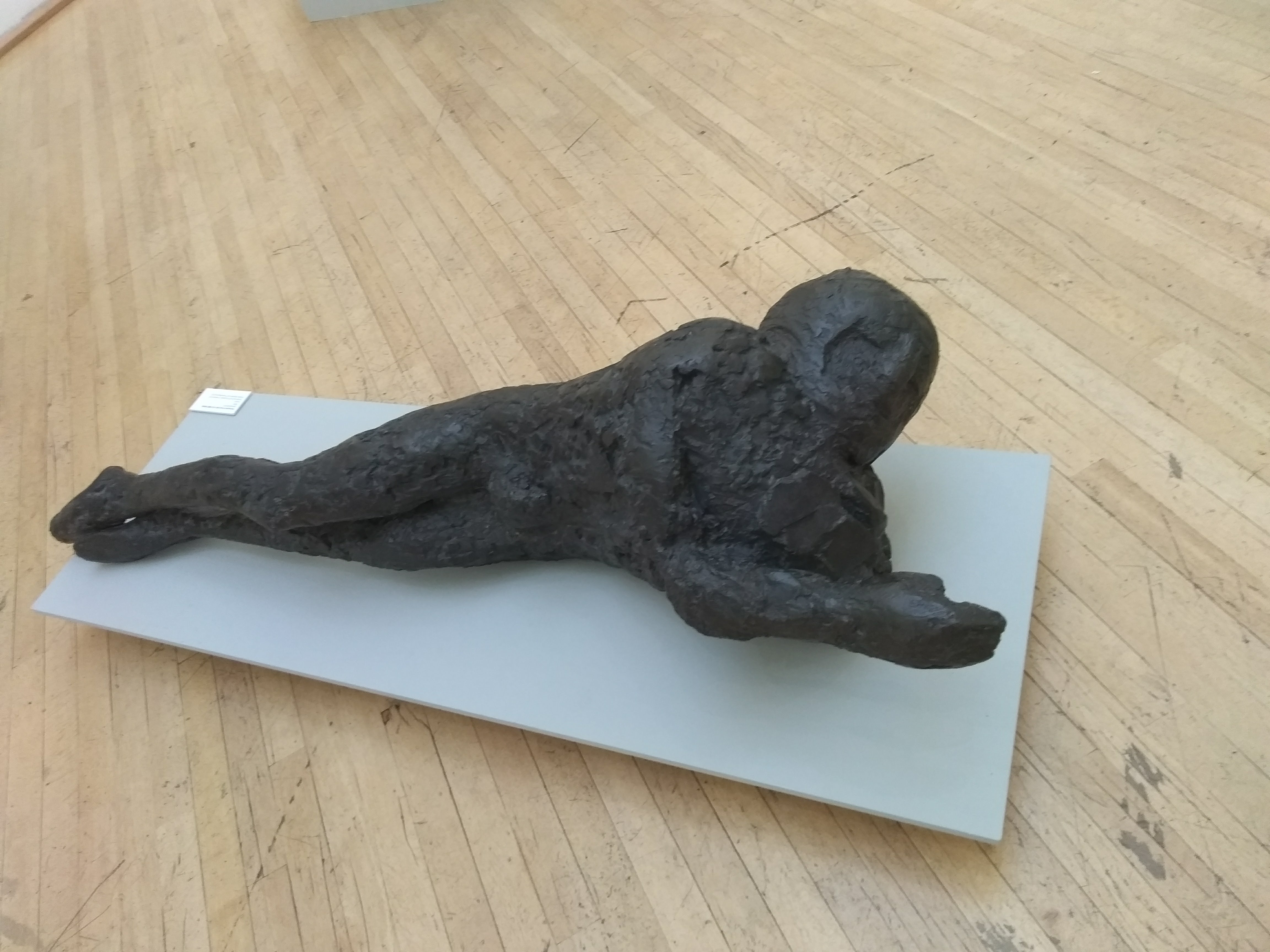
Epigram / Helena Raymond-Hayling
We end our journey in good spirits. I ask Sam for some reflection on the exhibition, and how it held up to his expectations.
'I thought it was gonna be more feminist. Instead it was just an exhibition of female artists. I could appreciate that more despite being a feminist because I don't like have stuff shoved down my throat (wahey).
Also if art is made to try and invoke emotion, the exhibition failed unless you count mild amusment at some of the pieces, like the horses fucking.'
It's been a fun afternoon, and Sam's insights and proven both funny and pertinent. I come away feeling that all too often, art does indeed take itself too seriously. Perhaps we could all use a more basic lens with which to view the vast landscape of the art world, if only to make it more accessible to all, especially basic bitches.
Are you a basic bitch? Let us know in the comments below or on social media

